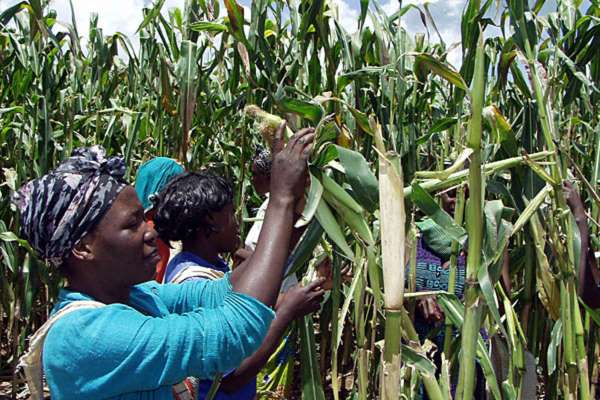Lusaka–ZAMBIA needs to diversify into agriculture and other growth sectors from commodity dependence to maximize returns and bolster economic growth decimated by COVID 19 and global recession, notes the United Nations Economic Commission.
Zambia’s growth prospects hinge on the country looking beyond copper mining and leverage the benefits to be derived from agriculture, manufacturing, tourism and mining as the continent seeks to tap into the growth prospects underscored by the launch of the Africa Continental Free Trade Area (AfCFTA), seeking to bolster intra trade in a single market with over US 2.3 billion market value.
Olayinka Bandele, the Chief: Inclusive Industrialization Section at UNECA Southern Africa (SRO-SA) urges Zambia and other countries reeling from the effects of COVID 19 and recession to be part of the integration of the continent and propel industrialization to propel Africa to be competitive.
In a presentation during a national economic dialogue meeting dubbed: “ Zambia’s Road to Economic Recovery through Growth, Jobs and Stability”, Bandele supports diversification as the ultimate for Zambia and other commodity dependent countries to reverse the economic contraction faced by the Southern African state since 2020.
The onset of the plague in early 2020 had reversed economic gains made by Zambia-contracting the economy to -2.8% recorded since 1998, compared to 1.54% growth recorded a year earlier, a further decline from four percent recorded in 2018 spurred by the disrupted supply chains and weakened activities and the recent Russia-Ukraine war.
Ms. Bandele notes the depreciating copper prices on the international metal market was not sustainable to allow the economy to growth and that agriculture and other growth sectors were the best options to generate growth and create jobs for the majority youths whose lives were short-changed by the pandemic.
Agriculture, she noted had more economic returns than the commodity reliance. Despite the containment of fiscal and monetary measures including financial and liquidity boosting measures coupled with improved vaccines to insulate the continent from further contractions, little has been achieved through copper exports as prices on the international metal market continue fluctuating.
Over 60 percent of Zambia’s population derives its livelihood from agriculture. Despite
Zambia experiencing strong economic growth in the recent past, agriculture has not
performed well.
To fully exploit agriculture, Zambia has developed articulated agricultural policies and strategies including attainment of food security, maximizing farmers’ incomes, promoting sustainable agriculture, and enhancing private sector roles in input and output markets.
Zambia has initiated policies to support and investment in agriculture and create an enabling environment to attract private sector and smallholder interest in farm production, processing and trade.
Under the National Agricultural Policy (NAP) are liberalization, commercialization, promotion of public and private partnerships, and provision of effective agricultural services that will
ensure sustainable agricultural growth.
Zambia has stepped sustainable food production initiatives and enhancing agricultural productivity, farmers’ incomes and as a response to climatic change through among others, crop seed multiplication and distribution, conservation farming, and promoting “traditional” food crops such as cassava, sweet potatoes, sorghum and millet.
And UNECA commends Zambia and DR Congo over the bilateral collaboration created on the battery value chain last April which if nurtured, could facilitate growth for both countries as the two states form the centre of battery manufacture on the continent.
On 30 April, Zambia and the Democratic Republic of Congo signed cooperating agreements for the two countries to venture into electric battery manufacturing. President Hakainde said the agreement would help change the narrative that Africa is merely a source of raw materials for onward value addition.
DR Congo’s President, Felix Tshisekedi anticipates the agreements to have an important impact on the economies of the two respective countries and foster economic growth- home to at least 80 per cent of minerals required for the production of electric car batteries, another factor to Zambia’s economic growth.
The Zambia and Zimbabwe’s collaboration in the establishment and management of a common agro-industrial park was another milestone for stakeholders to benefit from cross border value chains, address poverty, inequality – value chains identified include; maize, dairy, cotton, wheat, soya beans, livestock (leather and leather products and horticulture) is another effort to bolster agriculture growth.









[…] Zambia needs to diversify into agriculture and other growth sectors from commodity dependence to maximize returns and bolster economic growth decimated by COVID 19 and global recession, notes the United Nations Economic Commission. Zambia’s growth prospects hinge on the country looking beyond copper mining and leverage the benefits to be derived from agriculture, manufacturing, tourism and mining as the continent seeks to tap into the growth prospects underscored by the launch of the Africa Continental Free Trade Area (AfCFTA), seeking to bolster intra trade in a single market with over US 2.3 billion market value. Read more: Farmers Review Africa […]
Comments are closed.